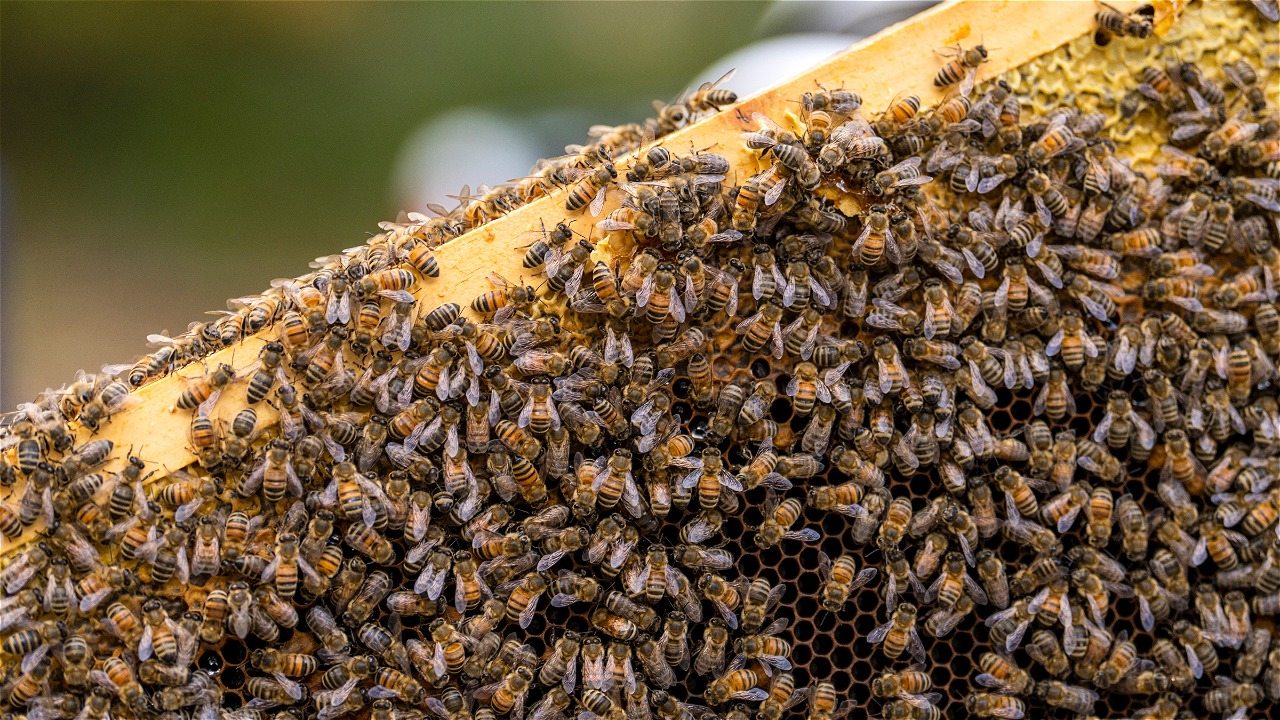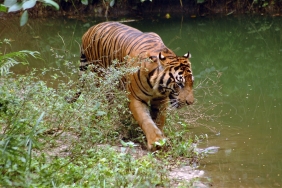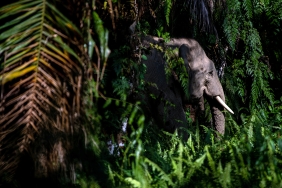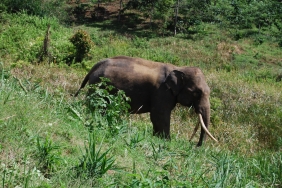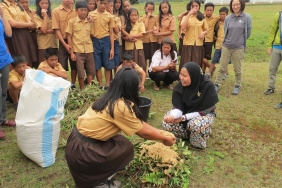WWF CONSORTIUM HELPS 2,000 HONEY BEE BOXES FOR MUMBULSARI VILLAGE FARMERS
By: Small Island WWWF-Indonesia Program Team
Community forest management is encouraged so that it can be ecologically, socially and economically useful. There are many stories of communities that have been able to save forests so that they can erode the bad stigma that poor people trigger forest loss in Indonesia.
Recognizing this, the government has facilitated forest management schemes. One of them is by legalizing the utilization of 758 ha of forest in Santong, North Lombok, by 838 farmers organized in the Maju Bersama Santong Cooperative.
To support government programs, especially in forest management, WWF-Indonesia together with the Santong "Maju Bersama" Cooperative - supported by a grant from the Millennium Challenge Account-Indonesia (MCA-I) - initiated a program to improve the economy of forest management communities, which aims to preserve the Mount Rinjani area and simultaneously improve the economy of communities around the forest.
This program is designed to answer the problems faced in the development and utilization of Non-Timber Forest Products (NTFPs) in a sustainable manner. Starting from the production process, processing, to marketing. This is done by increasing the capacity of poor communities and women's groups in forest and forest product management; as well as advocating for policies that favor NTFPs.
One of the implementations of these efforts is the provision of assistance as many as 2,000 boxes (stup) of honey bees (trigona sp and Apis Cerana) by WWF-Indonesia to honey farmers in Belencong Hamlet, Mumbulsari Village, last Friday (25/11).
The event was also attended by the Regional Planning and Development Agency (Bappeda) of North Lombok Regency; the Department of Agriculture, Plantation, Forestry, Marine and Fisheries (DPPKKP) of North Lombok Regency; as well as the government and community of Mumbulsari Village.
The head of the Girang, Gelek, Genem (3G) Honey Network Group, Samsudin, said that homework in the beekeeping business is currently centered on improving the quality of honey production, considering that market demand is very large.
"With the help of these 2,000 honey boxes, it is estimated that in 2017 it will grow to 4,000 boxes, because every year the queen bee must be moved to an empty box and so on," Samsudin said.
"It is estimated that the harvest in the next six months can reach 400-500 liters, or the equivalent of Rp 112,500,000. If disturbed, the second harvest period can reach a sales value of Rp 250,000,000. With the help of this honey box, we are greatly helped and will provide benefits for farmers to increase income and develop NTFP-based businesses, "he continued.
WWF-Indonesia's Director of Conservation, Arnold Sitompul, Ph.d, in his speech, expressed his gratitude for the enthusiasm and support of the community for WWF-Indonesia's programs in North Lombok, which is through the MCA-I grant scheme.
"With this assistance, it is hoped that it can increase honey productivity, especially in Mumbulsari Village, and ensure the preservation of forest areas in the Rinjani Landscape in general, without leaving the aspect of improving the economy of people living on the edge of the forest," said Arnold.
On the same occasion, the Head of the Economy Division of the North Lombok Regency Bappeda, Wartawan, also revealed that this effort was not only an extraordinary breakthrough in empowering poor people living on the edge of the forest, but also in line with the priority programs of the North Lombok Regency Government.
In the future, the same support will be provided by the North Lombok Regency Bappeda such as facilities and infrastructure to support the development of this honey production. "We hope that honey NTFPs can become a superior product from North Lombok Regency, considering that the national market is still wide open," he added.
In addition, the Head of Mumbulsari Village, H. Sawaluddin, also confirmed that he would support the honey development program whose financing would be allocated from the village budget and the Mumbulsari Village-Owned Enterprise (BUMDES).
According to him, honey development efforts in the village are very possible because of the natural and climatic conditions that are very supportive, such as the availability of food sources every year and the absence of pesticides, as long as the handling is carried out sustainably.

